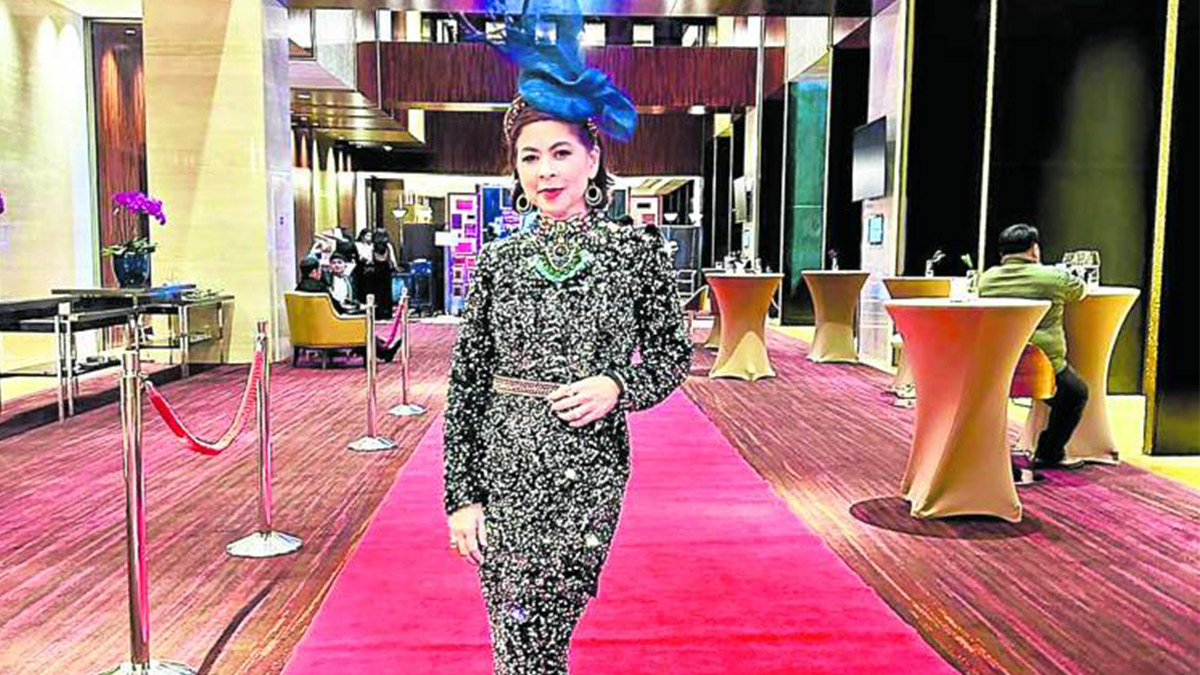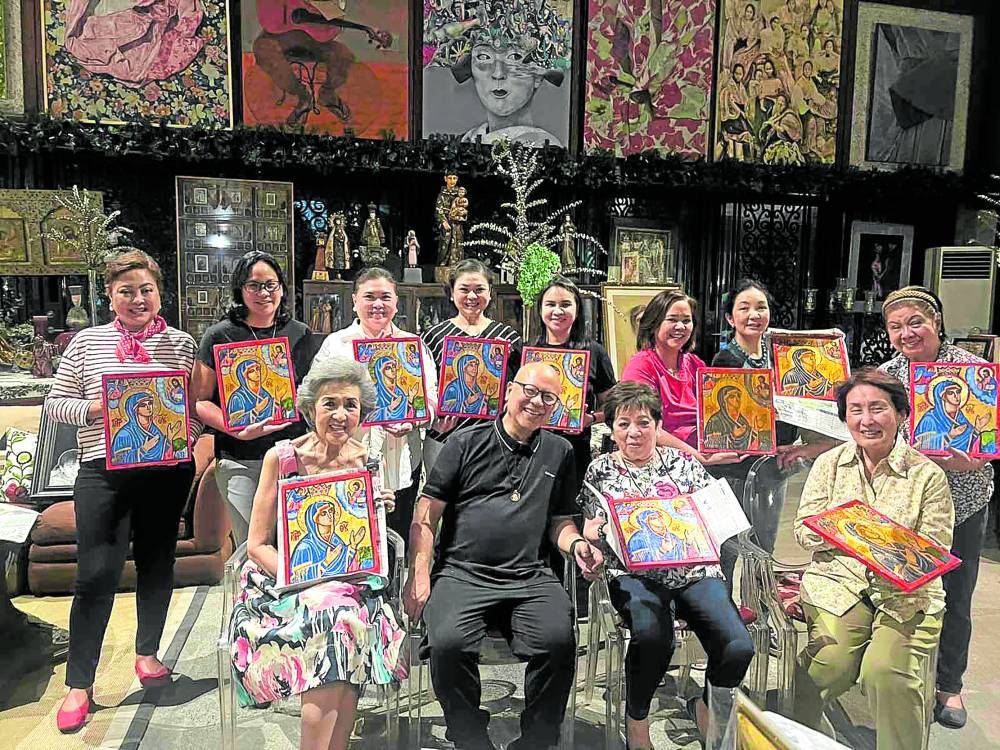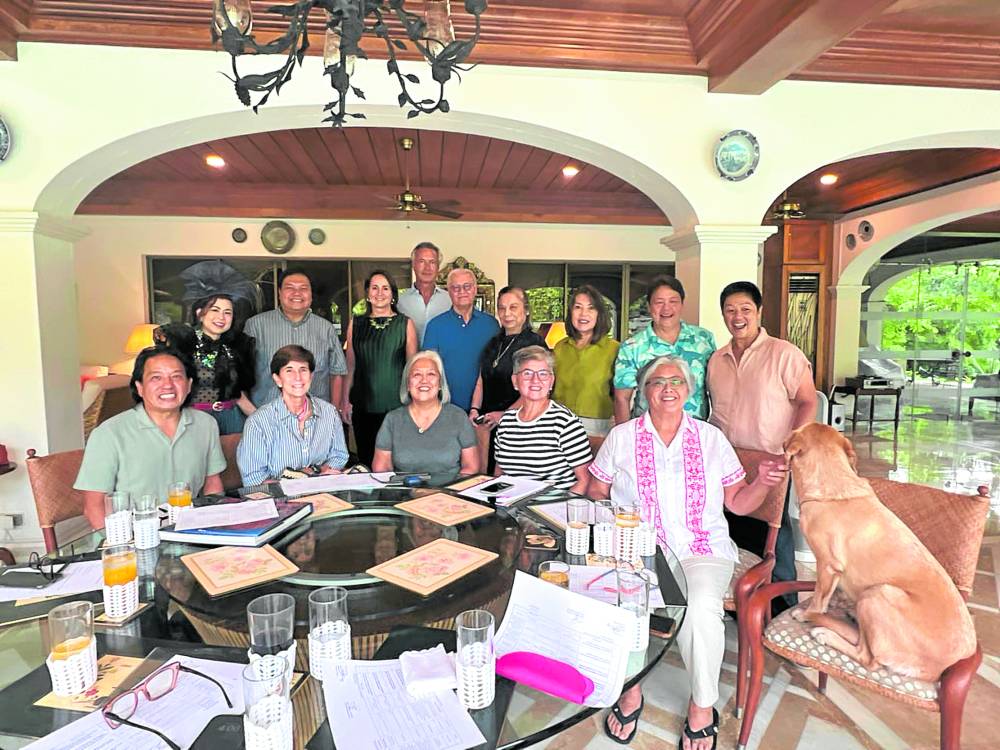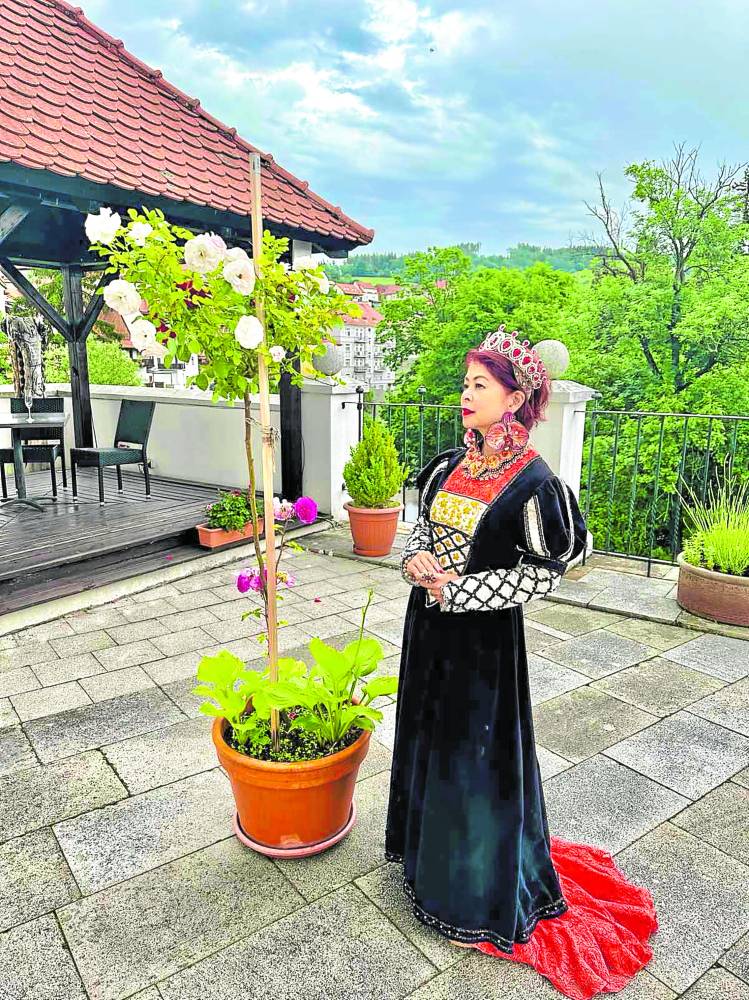
The first and most important thing you need to know about Anthony De Luna is that he’s not here to destroy your books. On the contrary, he loves old-fashioned ink-and-paper books.
“We do get that a lot,” says the 42-year-old president and CEO of Flipside Digital Content Company, Inc., the country’s leading publisher of electronic books (or e-books). “I tell them myself that I am a print guy. And I don’t think print is disappearing anyway.”
That seeming contradiction—a guy who loves ink-and-paper books and yet is the leading advocate of digital books—is part of the unusual story of De Luna, a tale of evolving circumstance and different time zones, a journey from old world to new, and one man’s crusade to expand how we look at books and what they represent.
According to a misprint on his birth certificate, Anthony Salvador De Luna is 142 years old. Instead of listing 1970 as his birth year, De Luna’s birth certificate instead shows it as “1870.”
“I survived the revolution,” he likes to joke. He was born to public school teacher Federico De Luna and homemaker wife Gloria Salvador, the youngest and only boy in a brood of seven.
De Luna grew up in the Sta. Mesa slums, and coming from such a large brood, had very limited means as the family relied solely on a public school teacher’s salary during the Marcos years.
When he would speak at foreign events in the past, he would introduce himself as “the Filipino slumdog millionaire,” because he had experienced much of what was in the Oscar-winning motion picture, including having to share a communal toilet.
Having an educator for a father (Federico taught arts and physical education), the De Luna children were encouraged to read, but were forbidden to read masa fare like Aliwan komiks.
“I read them anyway,” the De Luna boy recalls. In fact, he read whatever he found around him, like his sisters’ required reading in school, so he wound up reading Leo Tolstoy, “Silas Marner” and the classics early on.
De Luna thought he would eventually become an engineer, because that’s what all Filipino boys during his time thought they would be when they grew up. But reading American comics like Marvel and DC changed that. “I read a lot of foreign magazines,” he recalls. “For someone with such an impoverished background, that was my window to the world.” These life-changing magazines came by names like Time, Life, National Geographic and—remember, he was a teenage boy—Gentleman’s Quarterly (GQ).
In high school, he began dating a girl whose family (the Sisons) owned the bargain book store chain Booksale. When he visited her at home, De Luna discovered that the family had a warehouse crammed full of magazines and books. “I spent a lot of time there,” he says. Those years were when he began thinking of reading as something that was more interesting than engineering, his eyes opened by the diversity of the reading material he found in that warehouse.
In college at the Mapúa Institute of Technology, the electrical engineering student joined the school paper, the New Builder. “I spent all my time either covering news for the paper or just hanging out in the paper’s office.” Soon enough, he got writing assignments in a national daily and at Phenomenon, a local men’s fashion magazine. He decided to drop out one year before finishing his course.
“I guess when you’re young and you start earning, you think that’s enough money and you start thinking, OK, I can do this for the rest of my life,” De Luna says. After six months, he became the associate editor at Phenomenon, but the company folded after a year. “We were competing with GQ,” he explains. “There was no way to compete.”
Jobless with no college degree, he answered an ad for an editor’s job that turned out to be a proofreading job for an American who was putting up one of the first BPOs (business process outsourcing) in the country, a company called Innodata. From proofreading, he moved on to indexing and abstracting articles and kept moving up as Innodata grew from having 100 to 6,000 employees during his stint there. “I also put up their publishing division,” he adds of the company that provided publication services for other firms in the US and Europe.
When one of De Luna’s colleagues left Innodata and worked for big American book retailer Barnes & Noble, she hired him when she needed help. He started as a consultant, but soon became the company’s vice president for technology and in 2000, became its president for digital content, serving concurrently as president of Electronic Publishing Ventures, Inc. (EPVI), a wholly-owned subsidiary that provided e-book and printing services for Barnes & Noble.
The dotcom boom was now in full force. EPVI was based in Eastwood City, Quezon City. “I was based there but spent a lot of my time in New York and Europe,” De Luna says of the time. “My job was business development, talking to different publishers around the world and convincing them to let us convert their books to digital so we could sell them on Barnesandnoble.com.” The e-book was being born-amid the world’s financial troubles.
After 9/11 happened in 2001, the dotcom bubble burst, taking EPVI with it. Barnes & Noble shut the company down but De Luna kept his small team together. “They had the core skills and I was thinking, sooner or later, some company was going to make e-books work.” He put his young company to work converting content for foreign early adopting publishers, during which the global specification of e-books changed from OEB (open e-Book) to EPUB (electronic publication). He dubbed his firm Flipside Publishing Services in 2003, with his shop set up along Pioneer Street in Pasig. “We were a hole-in-a-wall,” he says.
But Flipside found its groove, with foreign publishers sending their titles to the company to be converted into e-books that were then sold by publishers abroad. Amazon.com’s Kindle came out and iPads became common. “The volume of the conversion business was growing,” De Luna says.
He formalized the business entity in 2010 under the name Flipside Digital Content and registered it with the Philippine Economic Zone Authority to take advantage of available tax incentives. Flipside was now doing upward of 350 titles a month and began doing work for four of the six American publishing giants.
In 2011, Flipside started publishing Filipino e-books—even if the market was iffy.
“Whether it has been accepted here or not, we just felt that it was being accepted globally and we don’t want the Philippines to be left behind,” De Luna explains. “Since we were doing this for some of the best organizations in the world, we might as well do it for the lowliest author or publisher in the Philippines. We started this as an advocacy.”
At the time, online vendors sold only titles in English, so Flipside was initially publishing only Filipino authors in English. That would change in November, 2011, when De Luna launched Flipreads.com, which served as a retailing outlet for their Filipino content. Flipside has now published over 130 local titles, most of them in 2012 alone. Aside from their titles being made available online, the local publishers also get a larger cut of the book’s cover price, getting 70 percent through Flipreads instead of the 35 percent they would get through other outlets.
To get content, Flipside co-published e-books together with local companies, beginning with the University of the Philippines Press. Today, Flipside co-publishes selected e-books from the UP Press, Ateneo de Manila University Press, De La Salle University and the University of Santo Tomas Publishing House.
So far, Flipreads’ top-selling title is the comic strip compilation “Kubori Kikiam” by Michael David. “It’s funny, sort of like ’Teenage Mutant Ninja Turtles’ meets ’Beavis and Butthead’ but with kikiam,” De Luna says, adding that the translated title went to no. 1 on the iTunes Store in the Netherlands and Belgium. (Full disclosure: Flipreads also sells the e-books from Inquirer Books, Inquirer’s publishing arm.)
Of all the Filipino authors, there is one that De Luna badly wants. “Nick Joaquin,” he says. “We would love to have him.” Honeylein de Peralta, Flipside’s VP and general manager, explains that they want to make available a broad range of Filipino titles. “When we say promoting Filipino literature, we don’t mean only literature from Manila or Luzon,” she says. “We want to promote literature of all languages in the Philippines and make them accessible to all.”
What De Luna is working on now is convincing publishers to use a universal medium for the e-books instead of each developing their own format. “I’m seeing many of my colleagues when I was still working for Barnes & Noble who thought they would create their own format. All of them got fired after spending millions and millions of dollars trying to develop their own format. Because what will that do? It will put your books in asylum. But I think the local publishers are going through that. I think it’s a natural process.”
Though he admits Filipinos are very much attached to their old-fashioned ink-and-paper books, De Luna is also trying to convince local publishers that the digital revolution is coming, whether they like it or not. “So when we talk to major publishers here we just talk about preparing for it. We don’t ask them to convert now or distribute now. It’s more of our evangelism at this point. That’s why we publish our own (books). If only the publishers do it on their own, we don’t have to publish. But because there is a barrier there, we felt that we had to get it started for the Philippines.”
Literature professor and literary critic Isagani R. Cruz says that e-books do face a considerable challenge in the Filipino market. The biggest problem is lack of familiarity. “Most Filipinos cannot afford the hardware such as tablets, e-readers, laptops or desktops,” Cruz says. “Even for those who own the necessary hardware find that it takes a while to get used to reading a screen rather than a page.”
Cruz says that some private and public schools are now adopting tablets as a complement to printed textbooks. “These young students will eventually form the bulk of the adult readership.”
He also believes that Filipino writers will eventually be won over once they get used to the advantages of e-books. “Once they realize that their books will be read by a lot more people in a lot more places in the world in e-book form, they will embrace it,” Cruz says. De Peralta agrees: “I have never met a writer who’s openly anti-e-book, only those who say that they’re not sure how to go about,” she says. “Most of them try to understand it further because it’s hard to deny that the transformation of analog content to digital content is here to stay.” Cruz predicts that “Philippine books will become international bestsellers as e-books eventually.”
De Luna agrees that the schools are important and is now engaging in talks with educational publishers. He also says that cellphones were once considered rich men’s toys but are now ubiquitous. “I think the prices of gadgets and devices will go down,” he says, adding that he thinks that paper books can co-exist with e-books. He definitely believes it will happen during his lifetime.
In his spare time, De Luna enjoys reading the unreleased titles of his clients, as well as independently-published Filipino titles and comic books. He is married to Teresa Paula De Luna, a professor at UP’s Department of Speech Communication and Theatre Arts, with whom he has two children, 13-year-old Meira and 8-year-old Larien, named after Elven characters in JRR Tolkien’s “The Lord of the Rings” trilogy.
Flipside continues to thrive. It now has more than 170 clients ranging from educational publishers, to the most popular ones, which they cannot identify due to non-disclosure agreements. But De Luna can say that “wizards and vampires, all that came from here.” The foreign companies come to Flipside because “we know how to make pages look good for print.”
Its 120 employees also work in three shifts to accommodate foreign time zones. “We’re being approached all the time by the global buyers but we’re resisting because we want to be Filipino-owned and operated. So we will have to grow because reading in the digital age will just continue to grow.”
He would also like to continue growing their catalog of Filipino titles, De Luna said. The first issue of Budjette Tan and Kajo Baldisimo’s “Trese” comic book series is coming soon to Flipreads and he thinks it will do very well. “The genre—the supernatural—is very popular now, it’s a comic book, it’s well-written and well-drawn.”
There are so many more books to be converted and so many more readers to be converted to this cause as well. “The best thing about being an electronic publisher is that it gives us a level playing field,” he says. With Flipside kicking into a new gear, this unlikely revolutionary intends to continue this chosen advocacy. “We’re trying to lead (the revolution) here,” De Luna says. “We helped lead it internationally. I’m Pinoy so I would love to lead it here.”














































